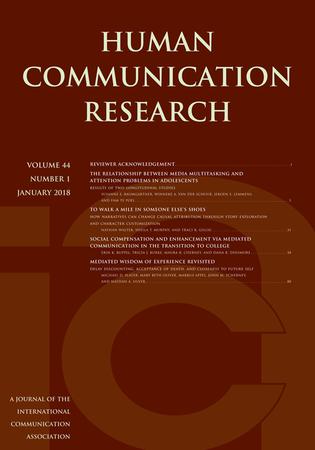The polarizing content warning: how the media can reduce affective polarization
IF 3.3
1区 文学
Q1 COMMUNICATION
引用次数: 0
Abstract
Past research suggests that journalists can (unintentionally) exacerbate affective polarization when reporting on growing levels of polarization in society. However, is there a way for journalists to report on the realities of growing political polarization without dividing people further? In our research with five pre-registered experimental studies (N = 3,414), we develop the polarizing content warning which, based on inoculation theory, warns readers that scientific research suggests reading news content about political polarization may drive further affective polarization. Results indicate that the polarizing content warning can be used both with online news articles and on social media sites, and is able to indirectly reduce affective polarization of readers. Additionally, the polarizing content warning is beneficial both when presented alongside news content and beforehand, and reduces readers’ perceptions of societal polarization, in turn reducing affective polarization. This warning allows journalists to report on societal polarization without further dividing people.极化内容警告:媒体如何减少情感极化
过去的研究表明,记者在报道社会中日益严重的两极分化时,会(无意中)加剧情感上的两极分化。然而,记者是否有办法在报道日益严重的政治两极分化现实的同时,又不使人们进一步分裂呢?在对五项预先登记的实验研究(N = 3,414)进行的研究中,我们根据接种理论提出了极化内容警告,警告读者科学研究表明,阅读有关政治极化的新闻内容可能会进一步推动情感极化。结果表明,极化内容警告既可用于网络新闻文章,也可用于社交媒体网站,能够间接减少读者的情感极化。此外,极化内容警告在与新闻内容同时出现或事先出现时都是有益的,可以减少读者对社会极化的看法,进而减少情感极化。这种警告使记者在报道社会两极分化的同时,不会进一步分化人们。
本文章由计算机程序翻译,如有差异,请以英文原文为准。
求助全文
约1分钟内获得全文
求助全文
来源期刊

Human Communication Research
COMMUNICATION-
CiteScore
8.20
自引率
2.00%
发文量
28
期刊介绍:
Human Communication Research is one of the official journals of the prestigious International Communication Association and concentrates on presenting the best empirical work in the area of human communication. It is a top-ranked communication studies journal and one of the top ten journals in the field of human communication. Major topic areas for the journal include language and social interaction, nonverbal communication, interpersonal communication, organizational communication and new technologies, mass communication, health communication, intercultural communication, and developmental issues in communication.
 求助内容:
求助内容: 应助结果提醒方式:
应助结果提醒方式:


